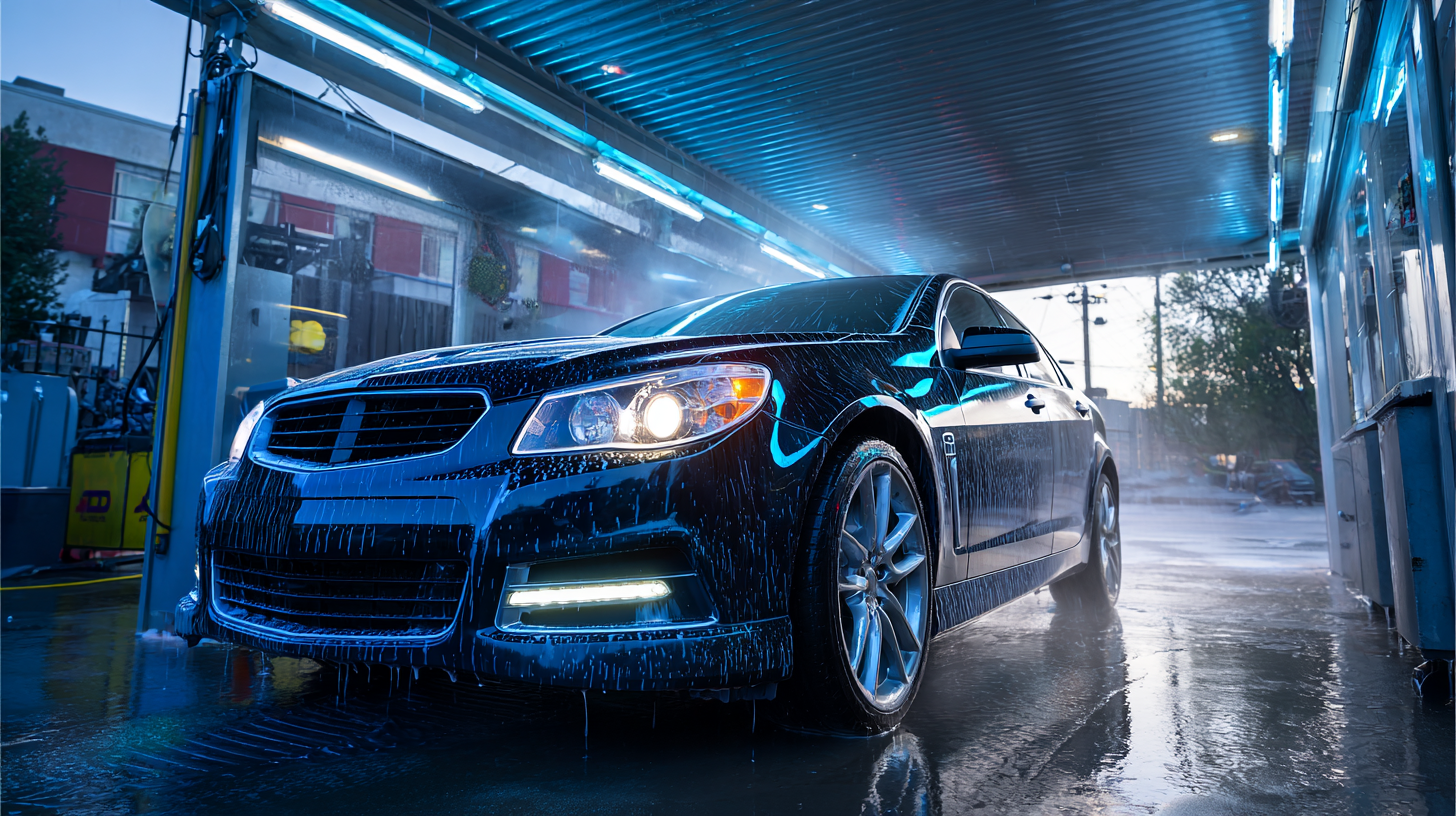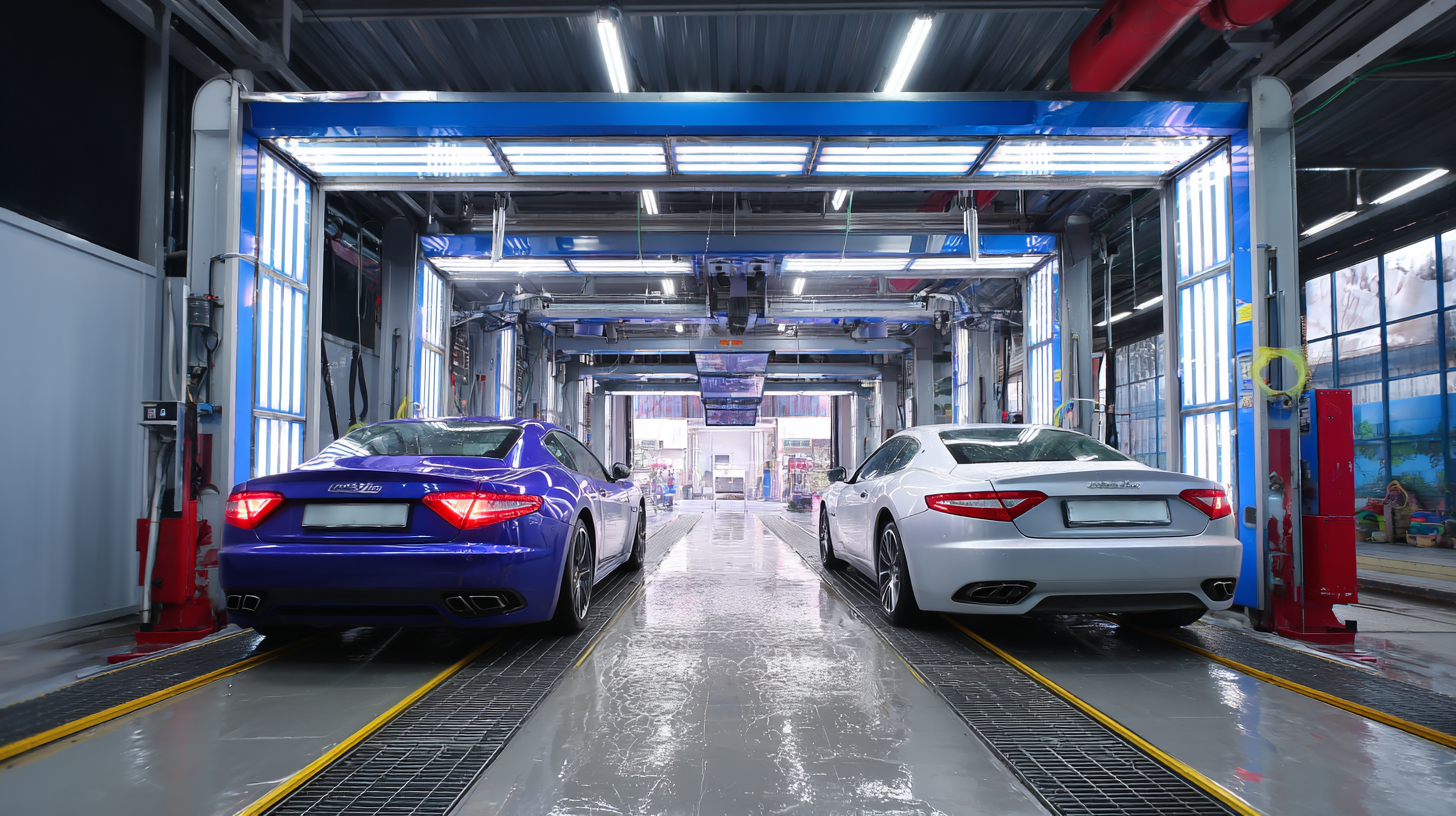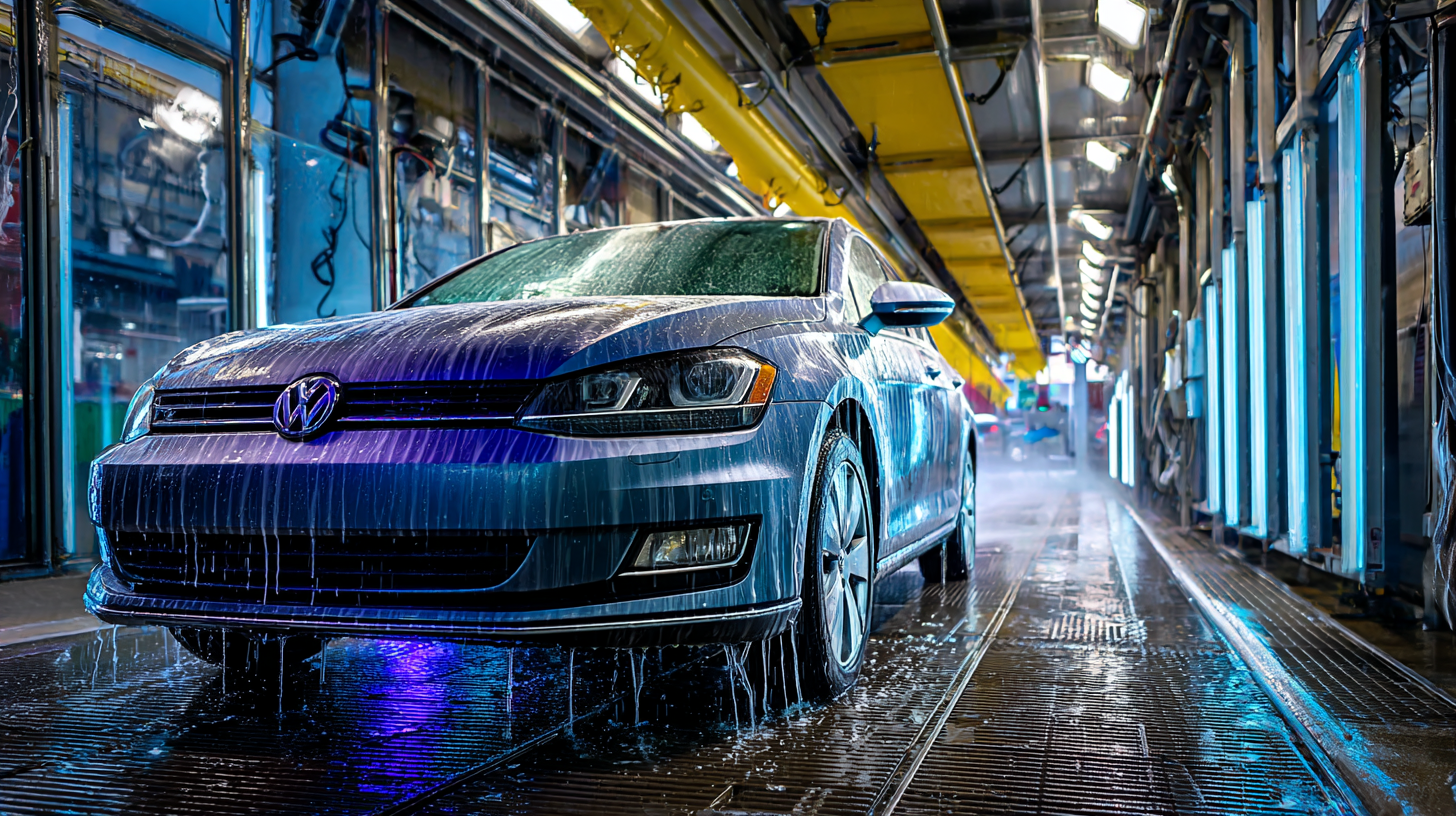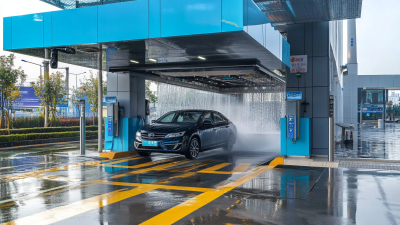2025 Top 5 Auto Car Wash Machines for a Sparkling Clean Vehicle
In the rapidly evolving automotive maintenance industry, the significance of a high-quality Auto Car Wash Machine cannot be overstated. As per a recent report by IBISWorld, the car wash industry is projected to reach $12 billion by 2025, with a growing demand for efficient and eco-friendly washing solutions. This surge in market value underscores the increasing awareness among vehicle owners regarding the importance of maintaining a pristine exterior not just for aesthetics, but also for preserving the long-term quality of their cars.
Modern Auto Car Wash Machines have stepped up significantly in terms of technology and performance. With advancements such as touchless washing systems and eco-friendly detergents, the latest models are designed to deliver an impeccable clean while minimizing water usage and environmental impact. According to the International Carwash Association, more than 70% of car owners prefer professional washing services over home washing, which highlights an opportunity for businesses to invest in top-tier washing equipment that meets consumer demands for both effectiveness and sustainability.
In this context, we will explore the top 5 Auto Car Wash Machines set to dominate the market in 2025, examining their features, benefits, and the pivotal role they play in enhancing vehicle maintenance. As we delve into these innovative solutions, it becomes clear that investing in the right equipment can transform car wash operations, ultimately providing a sparkling clean vehicle that meets the expectations of today’s discerning consumers.

Top Factors to Consider When Choosing Auto Car Wash Machines in 2025
When choosing an auto car wash machine in 2025, several key factors should be considered to ensure you invest in a model that meets both performance and consumer expectations. With the global on-demand car wash service market projected to reach USD 33.95 billion by 2030, selecting the right equipment is crucial for tapping into this growing demand. These factors include technology integration, machine efficiency, and customer experience.
Advanced machines that utilize innovative cleaning technology not only enhance wash quality but also boost operational efficiency.
Tips: When evaluating car wash machines, look for models that offer customizable wash settings. This ensures that diverse customer needs are met while minimizing water and cleaning product usage. Additionally, consider machines that provide options for eco-friendly washing solutions to appeal to environmentally-conscious consumers.
Another critical factor is location suitability. Understanding market trends, such as the ongoing express car wash boom since 2015, can help you select the perfect site for your business. A well-placed auto wash machine not only attracts more customers but also drives profitability. Be sure to assess local competition and demographic preferences before making a decision, as these can greatly influence your success in the self-serve car wash industry.
Key Technologies Driving Efficiency in Modern Car Wash Systems
The automotive industry is rapidly adopting advanced technologies to enhance car wash efficiency. Key innovations such as automated systems, high-pressure washing mechanisms, and smart water recycling technology are revolutionizing how vehicles are cleaned. According to a report by IBISWorld, the car wash industry is projected to generate over $11 billion in revenue by 2025, reflecting the increasing reliance on sophisticated machinery. Modern car wash machines now boast features like touchless washing and quick-drying systems that reduce water usage by up to 50%, making them both eco-friendly and cost-effective.
When selecting an auto car wash machine, consider investment in technology that promotes efficiency. For instance, systems equipped with sensors that adapt water and soap usage based on vehicle size can significantly decrease operating costs. Additionally, upgrades to mobile payment solutions have streamlined customer interactions, resulting in shorter wait times and enhanced customer satisfaction.
**Tips:** Ensure you choose machines with integrated software for tracking maintenance and performance, as this can maximize uptime and service quality. Regularly assess the latest trends in eco-friendly cleaning solutions to stay ahead in the competitive market.

Industry Trends: The Rise of Eco-Friendly Car Wash Solutions
In recent years, the automotive cleaning industry has undergone a significant transformation, emphasizing eco-friendly solutions that not only deliver exceptional results but also minimize environmental impact. According to a report by IBISWorld, the car wash industry has seen a notable shift, with more than 40% of consumers now prioritizing eco-friendly options when choosing a car wash. This trend is largely driven by increased awareness of water conservation and the detrimental effects of traditional chemical cleaners on ecosystems.
Innovative car wash machines are now incorporating biodegradable soaps and advanced recycling systems that can reuse up to 80% of water, significantly reducing overall consumption. A survey by Statista indicates that 55% of respondents are willing to pay a premium for services that utilize sustainable cleaning products. As automakers and consumers alike become more environmentally conscious, the demand for machines equipped with these technologies is expected to rise, shaping the future of the industry. With manufacturers focusing on research and development of green technologies, the next generation of car wash machines will not only enhance vehicle cleanliness but also foster sustainable practices within the automotive community.
2025 Top 5 Auto Car Wash Machines
This chart illustrates the market share of the top five auto car wash machines based on their eco-friendly features in 2025. The rise in demand for environmentally friendly car wash solutions has influenced these rankings, showcasing consumer preference for sustainable products.
Comparative Analysis of Cost-Effectiveness in Auto Car Wash Machines
When considering the purchase of auto car wash machines, cost-effectiveness becomes a critical factor for both commercial operators and regular vehicle owners. The analysis of different machines reveals a range of initial investments, from budget-friendly models to high-end versions equipped with advanced technology. A thorough examination of features such as water consumption, energy efficiency, and maintenance costs can help potential buyers assess long-term savings versus upfront expenses. For instance, machines that utilize recycled water systems may incur higher initial costs but can significantly reduce utility bills over time.
Further, it's essential to consider the price per wash offered by each machine. Some models may have a lower purchase price but require more frequent parts replacement or have lower durability, leading to higher operational costs in the long run. In contrast, premium machines, though more expensive initially, often offer better reliability and lower maintenance expenses, making them more appealing for consistent use. By conducting a comparative analysis, buyers can make informed decisions that align with their budgetary constraints and operational needs, ensuring they select the most cost-effective option that delivers a sparkling clean vehicle.
How to Maintain Your Car Wash Equipment for Longevity and Performance
Maintaining car wash equipment is crucial for ensuring longevity and optimal performance. Routine check-ups and cleaning can significantly extend the lifespan of machines used in automated car washes. Regularly inspecting components such as brushes, nozzles, and pumps will help identify wear and tear before they lead to costly repairs or downtime. Additionally, using quality cleaning solutions specifically designed for car wash systems can enhance cleaning efficiency and prevent buildup that may hinder machine performance.
Another key aspect to consider is proper training for staff on the use and maintenance of car wash equipment. Understanding the specific operational requirements and maintenance protocols helps to reduce errors during wash cycles and encourages proactive care. Establishing a maintenance schedule that includes cleaning filters, checking fluid levels, and testing safety features ensures that the equipment operates at peak efficiency. By prioritizing these maintenance practices, car wash operators can offer reliable and consistent service, ultimately contributing to customer satisfaction and business growth.

Related Posts
-

Exploring Innovative Alternatives to Traditional Car Wash Machines for Efficient Cleaning Solutions
-

7 Incredible Benefits of an Automatic Home Car Wash System for Every Car Owner
-

Exploring the Future of Auto Car Wash Machine Industry at China Import and Export Fair 2025
-

8 Best Auto Car Wash Machines for a Flawless Shine
-

Top 10 Automatic Car Wash Equipment Manufacturers from China at the 137th Canton Fair
-

Unlocking Success with Best Touchless Car Wash Machine 7 Key Industries Transforming Vehicle Cleaning